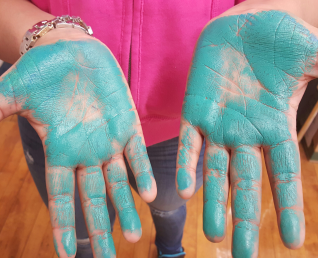
Students making origami at lunchtime.
This year, my assistant principals and I committed to being the “first responders” for student behavior issues. In the past, as the principal, I personally did not respond to most behavior issues. Teachers would call an office extension and another staff member or one of my assistant principals would respond to the issue.
This year, we created a system where the teacher directly texts the three administrators (my assistant principals and me) on “What’s App.” One of us then goes immediately to the classroom to support the teacher.
In being the “first responders,” we have our pulse on what’s happening in the school. Continue reading


 A friend was recently telling me about his experience when he was a child in the 5th grade. “I used to get in trouble before the 5th grade. But my 5th grade teacher, she liked me. It was like, she never expected me to do anything bad. So I didn’t.”
A friend was recently telling me about his experience when he was a child in the 5th grade. “I used to get in trouble before the 5th grade. But my 5th grade teacher, she liked me. It was like, she never expected me to do anything bad. So I didn’t.”